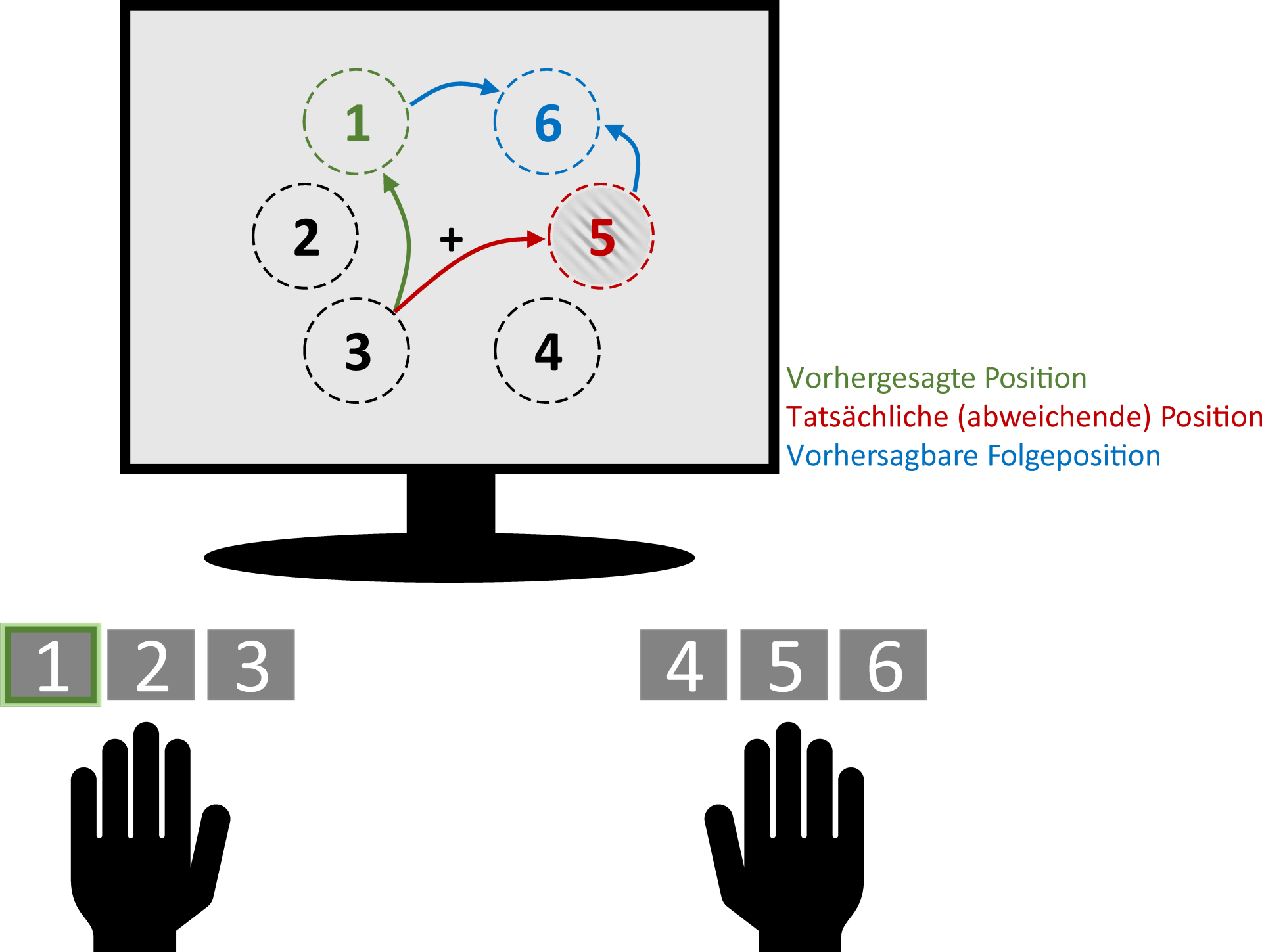Press Releases Archive
18.10.2018
Sleep helps us predict regular sequences of events
University of Tübingen neuroscientists show that the brain remembers processes better after sleep
Sleep stabilizes previously gained knowledge and, by doing so, helps to develop long-term memory. In a new study, Tübingen researchers Nicolas Lutz, Ines Wolf and Stefanie Hübner investigated whether sleep also improves learning performance in predictable processes. Their research was supervised by Professor Jan Born and Dr. Karsten Rauss of the University of Tübingen’s Institute of Medical Psychology and Behavioral Neurobiology.
In their experiment, the researchers asked two groups of test persons to learn certain sequences of visual patterns on a computer screen. Following a period of either sleep or being awake, the researchers tested their subjects to find out how they responded to changes in the sequences they had learned. It turned out that the group which had slept had more strongly internalized the sequences and dealt with them more confidently, even when the sequences were presented more quickly. The study has been published in the latest Journal of Neuroscience.
Researchers have a lot of evidence indicating that our brain stores the rules and principles of predictable processes. “To date we knew little about how predictions arising from previously acquired knowledge were generated and maintained over longer periods,” first author Nicolas Lutz says. In the current study, the team investigated whether sleep contributed to the formation, stabilization and abstraction of internal models of simple tasks. Tests subjects had to press a numbered button corresponding with the position of the pattern on the screen. One-off changes were introduced to previously-learned sequences. The researchers assessed the rate of button-pressing mistakes following a deviant stimulus and the stimulus directly following.
More mistakes prove better learning performance
“The error rate for deviant stimuli was much higher in the group which had slept than in the group which stayed awake,” Lutz says. “One of the reasons for this was that the subjects, after sleep, more frequently pressed the button for the expected stimulus instead of the one actually presented,” he adds. This is evidence that the group which slept had better internalized the original sequences and was therefore better able to predict them than the group which had remained awake, he says. The rested subjects were also quicker to get back into the original sequence when it returned after a divergent stimulus, according to Lutz.
Tasks comprising sequences in time and space are ubiquitous in our everyday lives. “When driving or playing a team sport, it is immensely important to anticipate the movement of the other parties and of objects. It is the only way that we can react adequately to unpredictable events, especially at high speed,” says project leader Karsten Rauss. “In follow-up studies we will try to find out how sleep contributes to the generation and storage of this kind of prediction on the neural level.”
Nicolas Lutz adds: “The formation of internal models which represent regularities in our environment and store them accordingly makes it easier for us to register unexpected events and to learn from them.” He says the new study has shown that sleep has a positive effect on this very useful learning process. “Our environment is constantly changing. In order to quickly adapt our behavior, we need efficient internal models that reflect complex patterns and, at the same time, simplify the countless stimuli flooding our senses.”
Publication:
Nicolas D. Lutz, Ines Wolf, Stefanie Hübner, Jan Born, and Karsten Rauss (2018): Sleep strengthens predictive sequence coding. The Journal of Neuroscience, 38 (42) 8989-9000; DOI: doi.org/10.1523/JNEUROSCI.1352-18.2018
Contact:
Dr. Karsten Rauss
University of Tübingen
Institute of Medical Psychology and Behavioral Neurobiology
Phone +49 7071 29-88921
karsten.raussspam prevention@uni-tuebingen.de
Contact for Press:
Eberhard Karls Universität Tübingen
Public Relations Department
Dr. Karl Guido Rijkhoek
Director
Janna Eberhardt
Research Reporter
Phone +49 7071 29-76753
Fax +49 7071 29-5566
janna.eberhardt@uni-tuebingen.de
www.uni-tuebingen.de/en/university/news-and-publications.html

